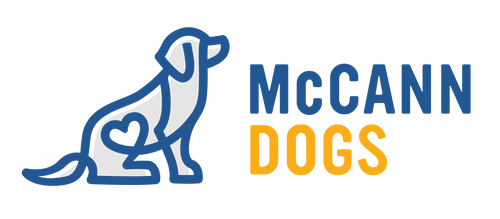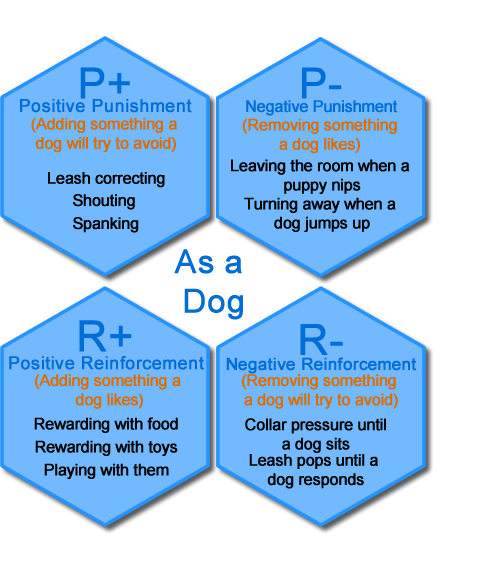We are in a privileged position to hear and see a lot of different dogs and a lot of different owners. It helps us continue to learn and grow as dog trainers and really reinforces the idea that no two teams are alike. If we want to help that person and that dog, we need to be able to adapt to their differences. We've become experts at knowing when to pick our battles. Knowing when something is a big enough influencer on that dog's behaviour that we need to persevere is important. It's equally as important to not push the envelope when we know something is not a big enough game changer.
When it's a big deal, we have to work to change the human's mind to get them on side with what we know will help the dog. Some of the most common arguments surround rewards and consequences. Some of the most crucial components in determining the success or failure of a team are the variables in rewards and consequences. I can almost guarantee you that you'll never see success in your dog training if the rewards you choose are only rewarding to the human element of the team. Likewise, with consequences, if you choose them based on human desires, you won't likely reach your goals of a well trained dog.
This article is not meant to be an argument over whether or not to use food in your training, just as a common example. When dog owners decide they don't want to train using food, they need to find something that is valuable to the dog to use in place of treats. If you believe your dog should work for praise, you better make sure praise is valuable to the dog. If not, you'll have a hard time convincing the dog that what you want them to do is worth their while. Would you go to work eagerly each week if your pay check was in popcorn? Maybe you love popcorn, but for the intention of a pay check, is popcorn a meaningful reward?
What do you think would happen if you tried to reward your dog with a dollar bill? A dollar is valuable to humans, but to a dog, they don't see it as meaningful. They won't see it as something exciting that comes when they've done something right and there won't be a transfer of value from the dollar to you the trainer or to the skill.
When you are training any dog, the eventual goal should always be to move to a random reinforcement schedule. The initial use of reinforcement should act as a bridge and by the time you're ready to wean away from the rewards, the value they've brought should have transferred to the skill you're teaching and/or to you. If you do things right, dogs will enjoy their job and enjoy working for you.
In dog training there are 4 quadrants of logic:
P+ or Positive Punishment is the act of adding something that a dog will try to avoid such as a leash correction. The thought process behind this is that dogs will avoid behaviours that bring unpleasant consequences. For example, if a dog jumps up to greet and gets a leash correction, they will learn that jumping up is unpleasant.
R+ or Positive Reinforcement is the act of adding something that a dog likes such as a treat. The thought process behind this is that the dog will repeat behaviours that they find rewarding. For example, if a dog sits when they greet a person and the person says hello with the dog sitting, the dog will learn that sitting earned reward.
P- or Negative Punishment is the act of removing something that the dog likes. For example, turning your back when a dog jumps on you. The thought process on this is that dogs will learn that the action of jumping up removes their reward.
R- or Negative Reinforcement is the act of removing something that a dog dislikes or will try to avoid. As an example, holding and squeezing a dog's paws when they jump up. The thought process on this is that the dog learns that jumping up is unpleasant. To turn off the discomfort, they should remain off.
With any of the 4 quadrants in play, the reinforcement or punishment needs to be meaningful to the dog. If you reward your dog with money, they'll never learn to value the skill you're teaching. Likewise, if you punish a dog by taking away the car keys, like you might with a teen in trouble, there is no meaning in that act for the dog.
Now to speak in more realistic terms. Obviously, nobody is going to try to reward their dog with money. So what do you reward your dog with? Food is simple. Most dogs love food, it's quick and simple and accessible to everyone, but if the dog doesn't show interest in working for food - food is not going to make a good reward for that dog. Whatever you choose to use needs to be meaningful TO THE DOG! We can talk until we're blue in the face about how dogs should just listen and should work for praise only or for us because we said so, but reality is that will only work if the dog finds it valuable and there's a lot to do before we get to to the end result where we no longer need to reinforce a skill every time it occurs.
I always suggest students prepare for training with a list of their dog's top 5 favourite rewards. This encourages people to think about what might be valuable to their dog. As the behaviours you train become more engrained and more valuable to the dog, you can adjust the way you use those rewards. Your list might look something like this:
1 - Cheese
2 - Beef
3 - Tug toy
4 - Ball
5 - Butt Scratches
Your list may be all different types of food or it may be all toys or a mixture, like the list above. What's important is that you've planned meaningful rewards for your training session. As you work towards the end goal of a variable reward schedule, where you may only pay your dog occasionally for listening well, you can pull from this list or you can use something less valuable to the dog. For example, I wouldn't pay my 10 year old dog with cheese for sitting anytime I ask, but I may reward him with a kibble for doing so once in a while. A variable reward schedule will ensure that even a 10 year old dog still sees value in the cues and skills they've learned.
In the end, the only thing that matters is that your dog finds value in what you're using to motivate them in our world.
As always, Happy Training!
|
|
Hi! I'm Shannon and I joined the McCann team in 1999 while training Quincey, my wonderful and spirited Rottweiler, to have good listening skills. I'm the Director of Online Training and Content for McCann Professional Dog Trainers and I enjoy writing about dogs and dog training for the McCann blog. I currently share my life with 2 Tollers (Reggie & Ned) and I love helping people develop the best possible relationship with their 4-legged family members. |


